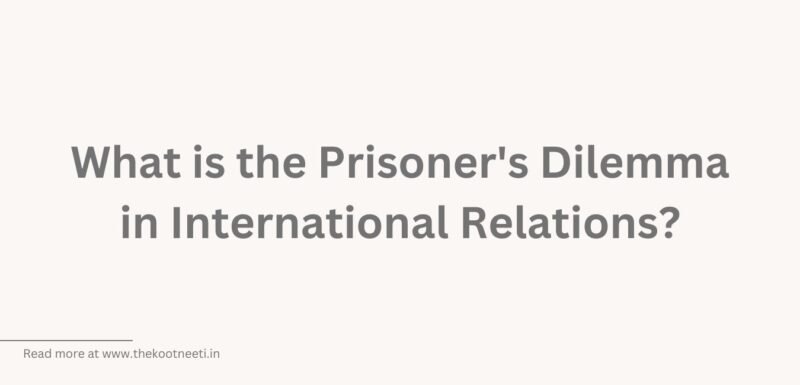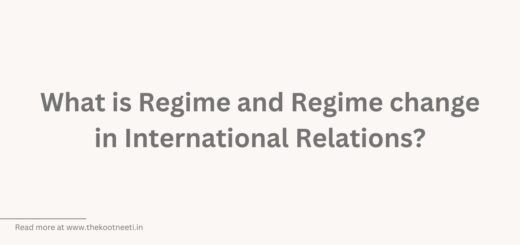What is the Prisoner’s Dilemma in International Relations?

The prisoners’ dilemma is a classic example in game theory that illustrates the conflict that can arise when two individuals or groups pursue their own self-interest.
In the standard version of the prisoners’ dilemma, two individuals are arrested and charged with a crime. Each prisoner is offered a deal by the prosecutor: if one prisoner confesses and the other remains silent, the confessing prisoner goes free and the other prisoner receives a longer sentence. If both prisoners confess, both receive shorter sentences than they would have received if the other prisoner had remained silent. If both prisoners remain silent, both receive a moderate sentence.
The prisoners’ dilemma illustrates the tension that can arise when individuals or groups pursue their own self-interest, as each prisoner is faced with the decision of whether to confess or remain silent. If both prisoners remain silent, they both receive a moderate sentence, but if one prisoner confesses, they go free while the other receives a longer sentence. This creates a dilemma for the prisoners, as each prisoner is faced with the decision of whether to pursue their own self-interest or to cooperate with the other prisoner.
The prisoners’ dilemma has been used to understand a wide range of social and economic phenomena, and it has been applied to fields such as economics, political science, and psychology, among others.


















